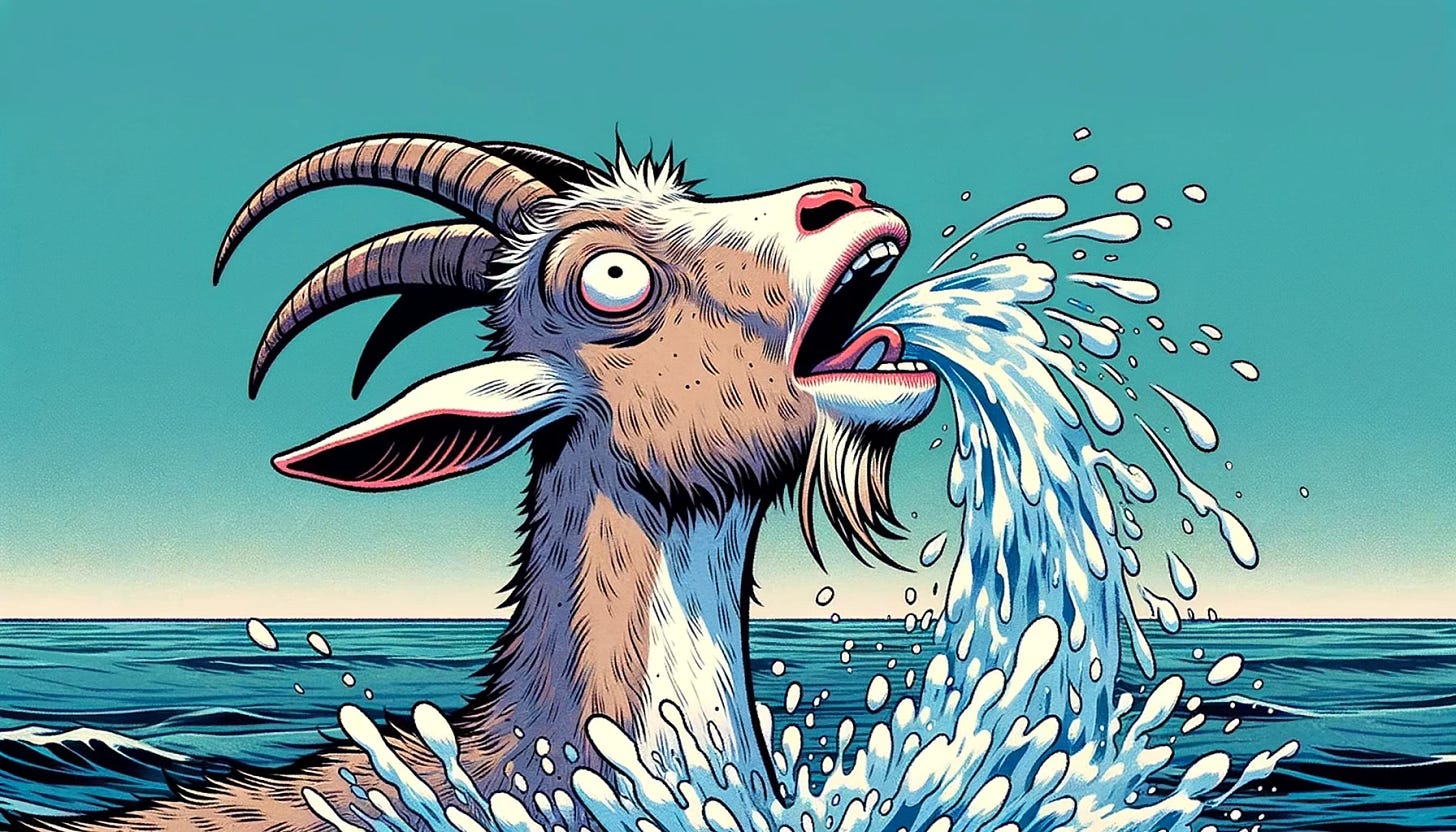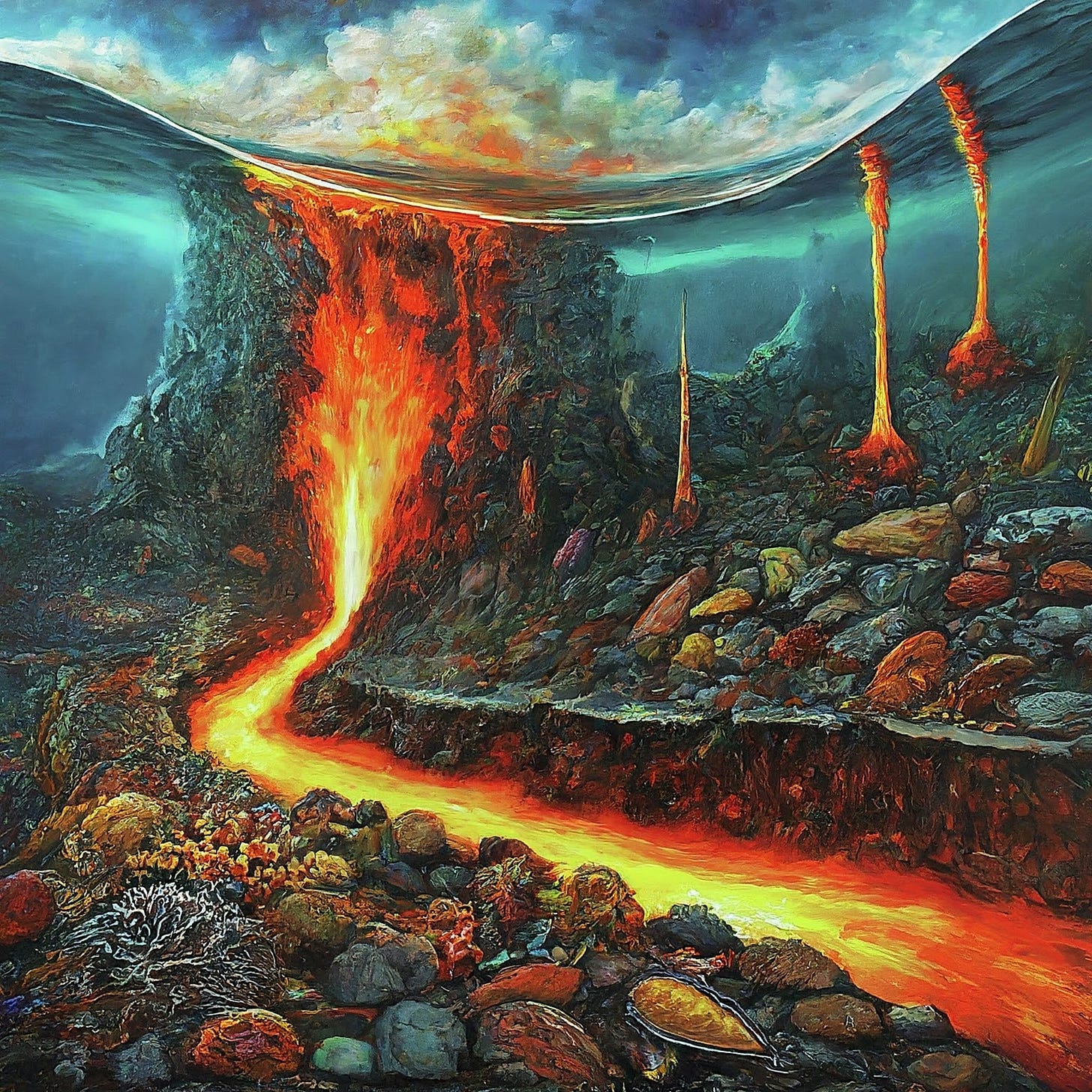Ever go swimming in the ocean and inadvertently swallow a mouthful of saltwater?
We know we humans can’t drink saltwater in order to hydrate, so there’s something visceral about this scene. And, if you’ve done this in the past, you almost certainly remember what it was like.
Some seas are saltier than others, but the average tends to be in the range of 35 parts of salt per thousand parts of saltwater. The Persian Gulf and the Mediterranean Sea are saltier due to being mostly surrounded by land, where fresh water can’t flow in as easily.
The Dead Sea is the most extreme version of salt concentration. That’s because the Dead “Sea” is really a landlocked lake. This makes it about ten times more salty than typical seawater.
Ten times! That means roughly a third of the weight of the Dead Sea’s “water” is salt. It’s hard to imagine swallowing a mouthful of that saturated substance.
Of course, there are less salty seas out there, too. The Baltic has a ton of freshwater runoff, so the salinity there is much, much lower—as low as 5 parts per thousand in some areas. Any time fresh water can get in through ice melt or at the terminal point of a river, you’re going to see a reduction in salinity.
So, there’s more salt in some places than in others, and we can understand those reasons… but why is there salt in the water in the first place?
If you grew up the way I did, you knew that there were dead things in the ocean, and that those dead things eventually became salt in the water. I remember arguing with my vegan friends about whether saltwater should count as being vegan, one of those rabbit holes worth going down in the days before the internet.
It’s true: some of the salt in the water does come from dead things, and most of the salt from dead things is from animal life. What’s also true is that this is only about 1% of all the salt in all the oceans in the world.
Instead, hundreds of millions of years of erosion and runoff are the main culprits. Rainwater is slightly acidic, which means that it very slowly erodes rocks as it flows along riverbeds and streams, gradually picking up minerals from those rocks. These ultimately end up in the ocean.
There’s also underwater volcanic activity happening all the time, and hydrothermal vents will spew out substances rich in minerals, straight from the Earth’s mantle.
This water evaporates, leaving the minerals—the salt—behind. Then, it rains, and the process repeats itself. Sounds like a one way process, right? Will the oceans only get saltier over time?
Well, no. Salt can leave the water, too, although the process of taking salt out takes a lot longer. Some of the salt can get locked out of the water by bonding with rocks and minerals that end up on the ocean’s floor. Some animals will use salt in order to build shells and skeletons, and these will break down when the animals die, they can become a part of that sediment.
One last question for today: why can’t we just drink saltwater?
The simple answer I’ve heard all my life is that your kidneys just can’t filter all that salt. They work so hard trying to filter the salt out that they end up using more water than was swallowed. This leads to dehydration, so it’s a futile quest to drink saltwater to quench your thirst.
That’s actually correct, but there’s more to the story. Our cells need water to function, and they absorb it through a process called osmosis. This means that water moves from an area of low salt concentration (like the area inside our cells) to an area of high salt concentration—our bloodstream.
This is normally fine, except when the water surrounding those cells is more salty than the water inside the cells. That’s when the exact opposite happens: water is drawn out of your cells and into the water!
Not only does drinking saltwater not quench your thirst, but it can make you even more dehydrated.
The next time you go for a swim in some salty water, think about why your lips feel so dry. If you end up with an inadvertent mouthful, think about that 3.5% concentration of salt, and how all those minerals gradually eroded their way into that bit of water.
Just try not to swallow any.






When I was little, we went to Hawaii because my brother was stations there in the Navy. I was so excited to go swimming in the ocean. Then I got a mouthful of water. It was like someone poured a bucket of salt in my mouth. I quickly exited the water. lol
"...you knew that there were dead things in the ocean" - I see you keep blackmailing me with your not-so-subtle hints.
Bob had it coming. He's sleeping with the fishes. Let's all move on now.